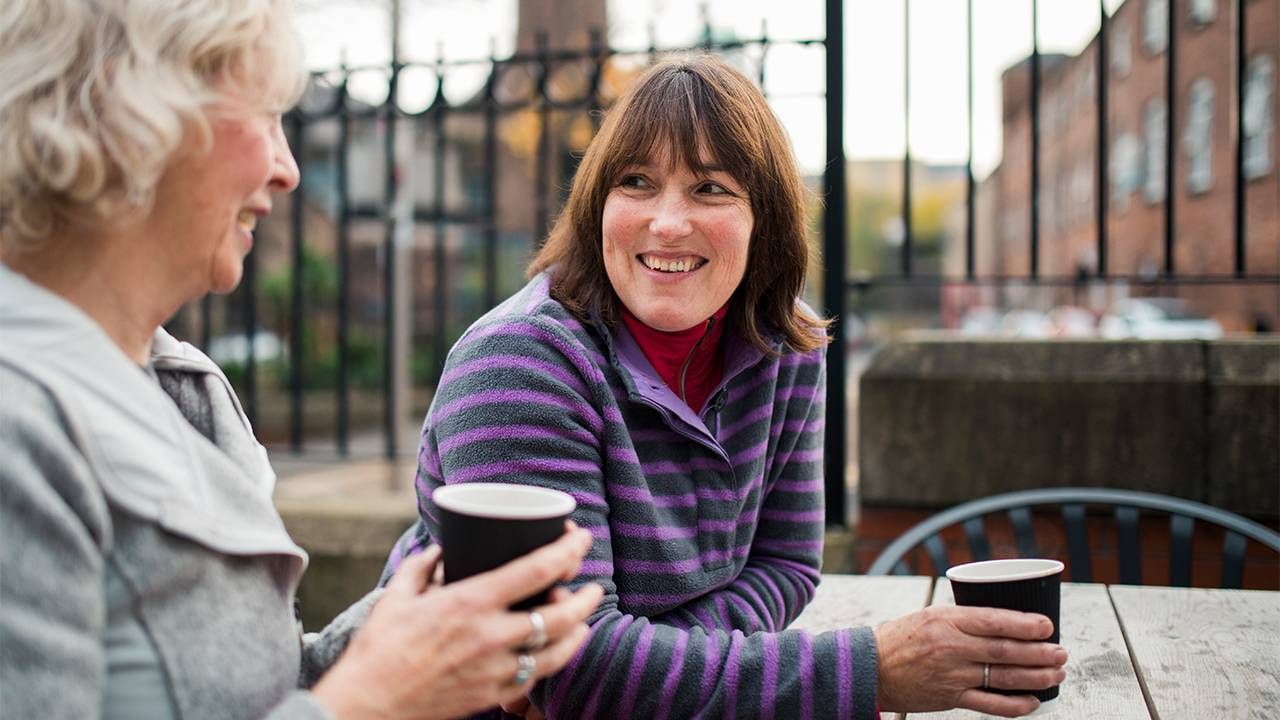Age Segregation, Loneliness and Addiction: Why Aren’t We Connecting the Dots?
12-step programs reduce all three. What can we learn from them?
On March 23, 2021, Dr. Vivek H. Murthy was confirmed as the Surgeon General of the United States. How fitting that an expert in loneliness (he is author of "Together: The Healing Power of Human Connection in a Sometimes Lonely World") is taking the helm at a time when the issue is front and center in all of our lives.

During the pandemic — a time of strict generational separation — loneliness, alcohol consumption and drug use have all spiked. Murthy, a Next Avenue Influencer in Aging, is well positioned to connect the dots and seek solutions in unlikely places. Like 12-step programs, originated by Alcoholics Anonymous (AA) in the 1930s.
The need to reduce loneliness, addiction and age segregation is urgent.
For the past 11 years, I have been an active member of multiple 12-step programs. In meetings that take place in church basements and over Zoom, I have seen people from different generations and backgrounds come together to heal from loneliness and addiction.
Millions of us are finding help in society's shadows. Much could be learned from undertaking a national research study aimed at better understanding what happens in 12-step programs, and how they not only heal loneliness and addiction but bridge generational divides.
Here are three lessons for Murthy and other policymakers to consider:
1. Serving Others Reduces Social Isolation
American culture values individualism. But for those who struggle with addiction, self-reliance doesn't work. When people join 12-step programs they quickly learn that the quality of their recovery depends on how willing they are to be of service to others and to receive help — a move toward interdependence.
Helping others not only builds self-esteem but decreases self-centeredness.
"Freely ye have received; freely give..." is at the core of Step 12.
Helping others not only builds self-esteem, but decreases self-centeredness and provides members with a greater sense of purpose. For many, it also results in having a strong community of support.
"I'm never lonely because my life is very rich," says Conny Caruso who, at 90, has been an active member of 12-step programs in Los Angeles for over 42 years.
That's largely due to the close friendships she's developed with younger people in the program who she says make her feel relevant. "I know I have a message to share that's useful," she says.
Caruso doesn't own a television or listen to the radio and she hasn't picked up a newspaper since the start of the pandemic. Instead, she joins the same 12-step meeting by phone four mornings a week, staying in regular contact with the people she used to see at in-person meetings. And she attends a weekly meeting over Zoom for writers in recovery, started by a young man she sees as a grandson.
When Caruso turned 90 last June, it was her program friend Sandy, 25 years her junior, who organized a small outside party (with masks and social distancing) to celebrate. "I'm going to have a huge party once everyone is vaccinated," Caruso says.
2. Valuing Lived Experience Combats Ageism
America is one of the most age-segregated countries in the world. When younger people don't have regular proximity to older adults, it becomes easier to believe ageist stereotypes and think of them as less human.
Too often, elders in this country are dismissed, disrespected or made to feel invisible.
The opposite is true in 12-step programs, where experience is valued above all. Elders are treated with respect, and young people are often hungry to hear how they've navigated life's challenges and made it to the other side.
In 12-step programs ... experience is valued above all. Elders are treated with respect.
That's been the case for Mari Pollack, who got sober in her 20s and has been working a 12-step program for the past 10 years. Her favorite meeting before the pandemic was a literature study group in Gardena, about 30 minutes south of Los Angeles, and attended by mostly Black men and women in their 50s.
Pollack, who was adopted in South Korea and raised by a white couple in Ventura County, Calif., relates to what the group members share and loves the wisdom they impart.
"It's very intimate and honest," she says. "Their stories of resilience show me how strong their faith is. That helps me reflect on how I can do a better job of putting my faith first and lean on it when things get hard."
3. A 'God of Your Understanding' Fosters Acceptance
The percentage of Americans who say they belong to a church, synagogue or mosque has been on the decline for decades, with a new Gallup Poll finding it's dropped below 50% for the first time in 80 years. Instead, there's a rapid growth in agnosticism, helping to explain the emergence of programs like Nuns & Nones, Civic Saturday and Sacred Design Lab.
Counter to popular (mis)understanding, 12-step programs are spiritual, but not religious. Members are encouraged to develop a relationship with a higher power, or a God of their understanding.
In 12-step program literature, labels like "Creative Intelligence" and "Spirit of the Universe" are used. For Alcoholics Anonymous members particularly averse to anything sounding remotely religious, the acronym GOD (Group of Drunks) is often used. Whatever works.
That was key for Mark Lopez, 58, of Los Angeles. He's a third-generation Mexican American who was raised in Catholicism. "I steered away from that religion," he says, "because of being gay and how that wasn't accepted. Even my parents treated me like I had a scarlet letter."
When he first started attending 12-step meetings, hearing the word God "was like fingernails on a chalkboard," Lopez says. It took time, and talking it through with his sponsor, to let go of resistance and create his own conception of a higher power. That spiritual connection, along with practicing healthy boundaries, changed everything.
"I can now say that I love my parents for who they are and what they've done for me," says Lopez. "I don't agree with their beliefs, but I can accept them for it." And, he adds, "I feel like in America right now, there's no room for varying opinions and, from my experience, that just amplifies separation and suffering."
To be sure, studying and learning from 12-step programs is inherently challenging given rules around anonymity and inconsistencies in membership. But it's not impossible. The most recent research attempting to quantify global membership in AA was conducted in 2001, with an estimate of 2.1 million.
The need to reduce loneliness, addiction and age segregation is urgent, as Surgeon General Murthy knows well. I hope he'll discover the insights that can be found in 12-step programs and bring them into the light.


